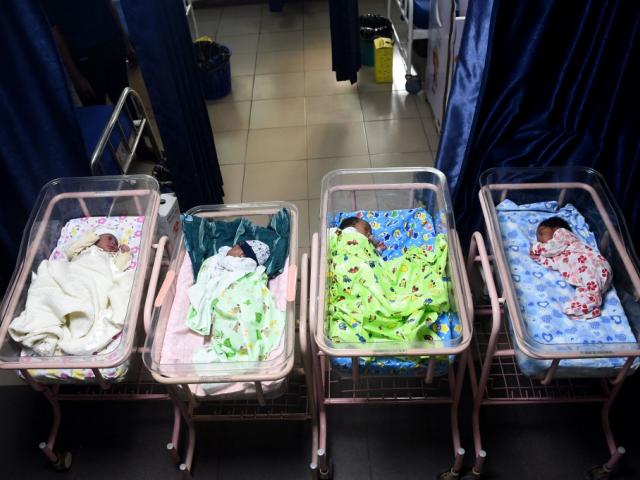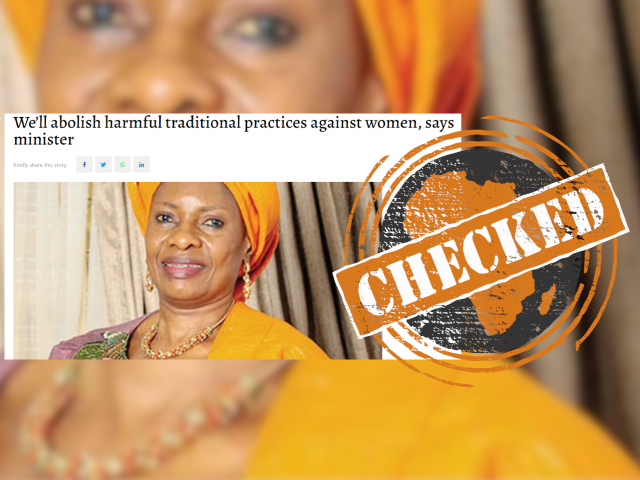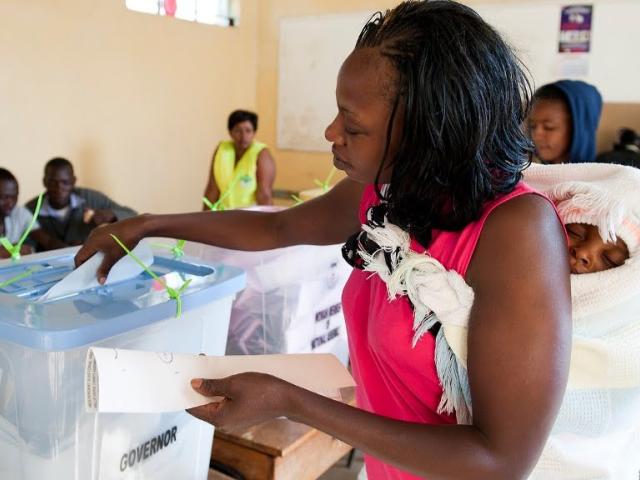-
In arguing for the decriminalisation of abortion in Nigeria, Dr Habeeb Salami of Pathfinder International made several claims about the toll the resulting unsafe abortions take on women’s lives.
-
But his claim that 11% of pregnancy-related deaths in the country are caused by unsafe abortions isn’t supported by recent data. Data does largely support his claim that Nigeria’s maternal mortality rate is 576 deaths per 100,000 live births – but it’s closer to 512 deaths.
-
The claim that “nothing less” than 200 women in Nigeria die pregnancy-related deaths “every day” is exaggerated. The reality is no less chilling: it’s about 184 a day.
Unsafe abortions caused 11% of the pregnancy-related deaths of women in Nigeria, Dr Habeeb Salami claimed at a September 2021 training workshop in Abuja, the country’s capital.
Salami is advocacy director for Pathfinder International, a global nonprofit that works to improve reproductive health, HIV and Aids prevention, and maternal health.
According to an article published by the Daily Trust, Salami urged Nigeria’s government to review it abortion laws. This would allow women and girls to get better reproductive services.
“He said outdated abortion laws in the country were responsible for the increasing death rate from unsafe abortions,” the newspaper reported.
We checked three of Salami’s claims about deaths caused by unsafe abortions, and Nigeria’s maternal mortality rate.
That’s the headline of the Daily Trust article.
The World Health Organization defines maternal death as any death of a woman during pregnancy, childbirth or up to 42 days after birth. These deaths exclude accidents.
“Unsafe abortion is a procedure of pregnancy termination either by persons lacking the necessary skills or in an environment that does not conform to minimal medical standards or both,” the WHO says.
Salami told Africa Check that the Daily Trust quoted him correctly. He referred us to Nigeria’s national guidelines on safe termination of pregnancy for legal indications, published by the federal health ministry in 2018.
The guidelines say unsafe abortion “alone” accounts for “about 10 to 14 % of maternal morbidity and mortality in Nigeria”. Africa Check asked the ministry for the source of the statistic. We have not yet received a response.
Abortion laws in Nigeria
Nigeria’s abortion laws can be found in the country’s Criminal Code Act. It states:
Section 228: Any person who, with intent to procure the miscarriage of a woman causes her to take any poison, is guilty of a felony and is liable to imprisonment for 14 years.
Section 229: Any woman who administers to herself any poison or uses any force of any kind to procure her own miscarriage is liable to imprisonment for seven years.
Section 230: Any person who unlawfully supplies anything whatever, knowing that it is intended to be unlawfully used to procure the miscarriage of a woman, is liable to imprisonment for three years.
Most recent estimate
Ann-Beth Moller, a technical officer in the WHO’s department of sexual and reproductive health, referred us to a 2020 journal article on unsafe abortions in Nigeria.
“In Nigeria, various studies have quoted unsafe abortions to be responsible for up to 30% of overall maternal mortality,” the article reads.
The study cited as the source of this statistic was conducted in 2013. It looked at the medical records of 102 patients admitted for complications from unsafe abortions over five years, in a rural part of south-west Nigeria.
The researchers found that sepsis – a dangerous condition where the body's response to an infection damages its own tissue – accounted for almost 80% of the complications.
“The case fatality rate was 16.6% and unsafe abortion accounted for 30.8% of all maternal mortality during the period,” the 2013 study reads.
Africa Check spoke to Dr Oluwatosin Wuraola Akande, a public health physician and lead author of the 2020 article. She said she wasn’t aware of any recent studies that had found 11% of pregnancy-related deaths in Nigeria were caused by unsafe abortions.
Without recent, publicly available and nationally representative data to support it, we rate the claim as unproven.
For this claim, Salami directed us to the 2013 Nigeria demographic and health survey. He also said it was more accurately 576 maternal deaths per 100,000 live births.
The survey is conducted every five years– most recently, in 2018. “Maternal mortality continues to be a serious problem in Nigeria,” the 2018 survey notes.
For the survey, 106,590 women aged 15 to 49 who had sisters were interviewed across the country from August to December 2018. They were asked if any of their sisters aged 12 or above had died, and if the death had been pregnancy-related.
The study estimated maternal mortality at 512 deaths for every 100,000 live births in the seven years before the survey.
This means that for every 1,000 live births in Nigeria in that time, about five women died during pregnancy, during childbirth or within two months after the birth.
“I was referencing Nigeria and extrapolating the maternal mortality rate for people to appreciate the magnitude of the deaths,” Salami told us. He added that he was “saying that at the minimum, about 200 women die every day”.
The WHO’s Moller referred us to the Maternal Mortality: Levels and Trends report for 2000 to 2017. It is published by the WHO, Unicef, the United Nations Population Fund, the World Bank and the United Nations.
The report’s country estimates are based on several sources, including civil registration and vital statistics systems, population-based household surveys and specialised studies on maternal mortality.
According to the report, Nigeria had 67,000 maternal deaths in 2017. This suggests there are 184 pregnancy-related deaths every day.
The report said Nigeria accounted for 23% of global maternal deaths in 2017. This was the highest of any country







Add new comment